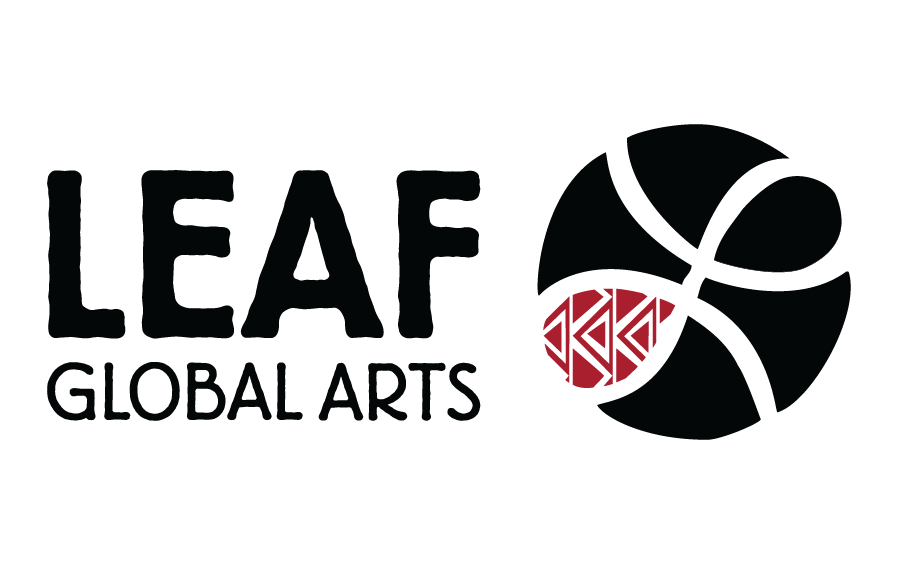LEAF InTERNATIONAL
LEAF International is dedicated to cultural preservation, the fostering of global citizenship, and cultural exchange. LEAF collaborates with communities to support Culture Keepers who teach local youth their traditional arts.
2025 International Impact
10 Countries
15 Programs
4 ONEmic Studios
18 Culture Keepers
11 Cultural Exchanges
630+ Weekly youth participants
7700+ youth participants in LEAF International programs since 2006
“Teaching music has become a new way of speaking to people. It has opened new channels of telling the people we are here and we have a culture.”
Alexis Rodriguez, LEAF International Culture Keeper, Ngäbe First Nation
LEAF International envisions a world where communities actively engage their youth in learning their cultural traditions while empowering them with the life skills necessary to be active agents of change in their communities.
At LEAF International, we believe in the power of music, art, and culture to empower individuals and transform lives. LEAF recognizes that these benefits are both tangible and intangible and that at times, quantifying and qualifying the impact of arts education can be elusive. LEAF International utilizes the Culture for Development Indicators as a guiding framework for the development, evaluation, and monitoring of programs.
Believing that cultural expressions provide a wealth of benefits that are crucial for a healthy and vibrant world, LEAF International aligns with the UN System Task Team for the post-2015 UN Development Agenda, who assert that cultural expression provides communities “with greater social inclusiveness and rootedness, resilience, innovation, creativity and entrepreneurship for individuals and communities, and the use of local resources, skills, and knowledge.”
The Culture for Development Indicators identifies 7 key dimensions that address the interrelations between culture and development. The CDIS has identified 22 indicators that inform these 7 key dimensions and provide a guiding framework for quantifying the contribution of culture in development.
LEAF International has aligned with these 5 guiding forces to design and evaluate global programs: (1) Economy Dimension, (2) Education Dimension, (3) Social Participation Dimension, (4) Communication Dimension, and (5) Heritage Dimension.
Within these 5 dimensions, 9 indicators are utilized by LEAF International as direct indications of how our programs are enriching individual lives, communities, and preserving forms of cultural expression.
LEAF International believes participatory and endogenous development is essential. All programs are carried out in partnership with already existing, local organizations, where we work collaboratively to set up traditional music and dance programs. While LEAF International acts as a catalyst to create and support the programs, these programs are not ours: rather, they are community-owned and community-led. This idea of endogenous development and the notion of giving ownership to the program constituents generates its own organic empowerment, while also creating a positive feedback loop of inspiration, participation, innovation, and accountability.
What is endogenous development? It is the idea that development of any kind should be based on local peoples’ own understanding of change and their own vision of holistic well-being. This endogenous understanding is then matched with a dynamic interface with external actors and the world around them. The point of endogenous development is to get beyond our western bias: to turn the page of history and make local peoples’ worldviews and livelihood strategies the starting point for development programs. Essential to supporting this endogenous understanding that is inherent in communities is to promote the interface between tradition and modernity, while also bolstering the transformative power of culture.
LEAF International promotes unique cultural traditions: what does tradition mean? LEAF International recognizes that traditions are not stuck in some timeless past: rather, they are keys to a community’s thriving present and future. Tradition is not a static object, but a dynamic process that is constantly being revived and revised by local people with active agency, particularly when passed down from one generation to the next. This constant cycle of the revival and revision of cultural traditions shows us how meaning and identity are constructed: informed by the past while we envision new futures.
SUPPORT LEAF
From music instruments to child sponsorship, our people-centered programs depend on generous givers like you to grow and thrive. Donate today! 100% of your gift goes directly to supporting Global Arts education & preservation!
